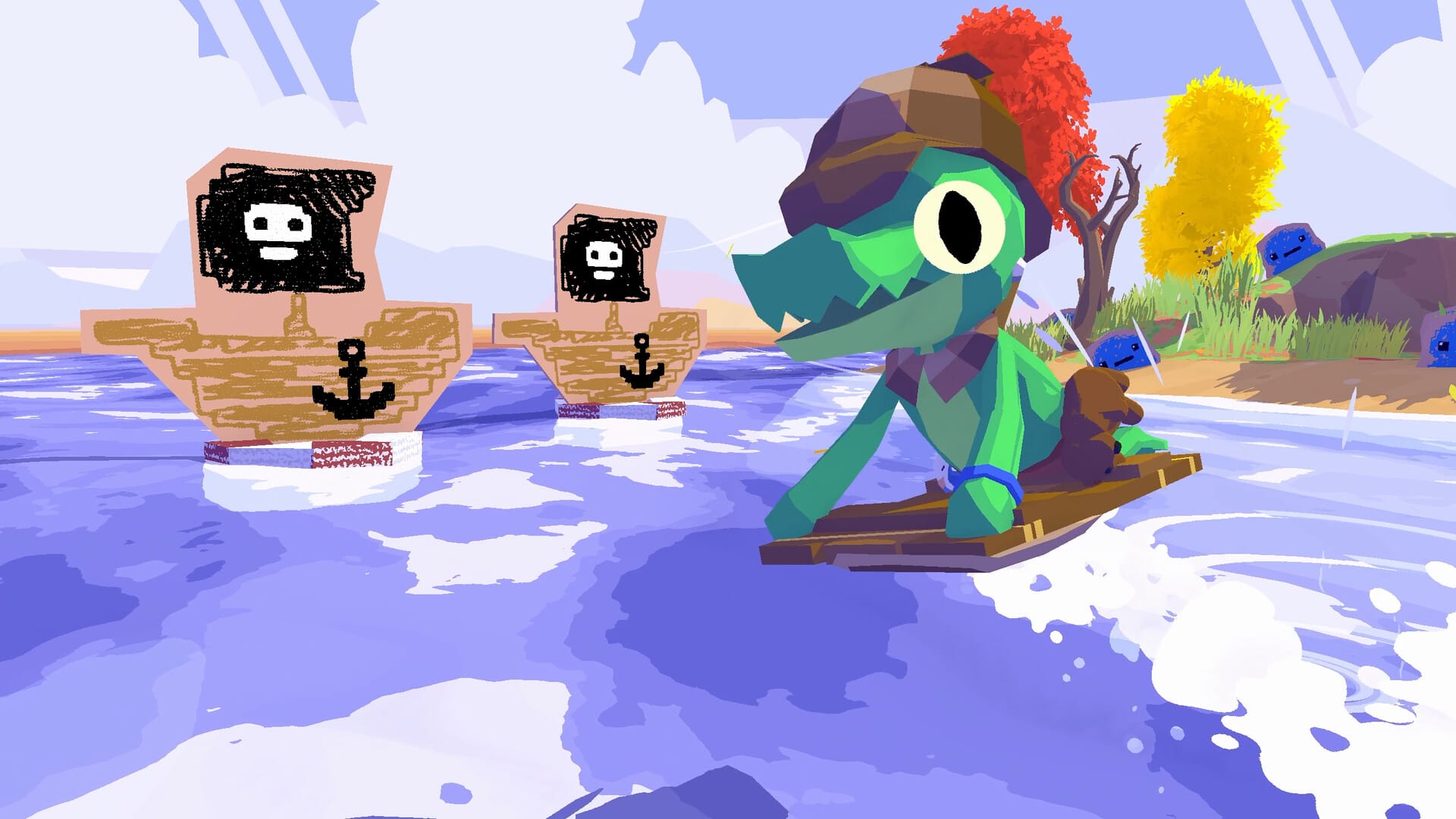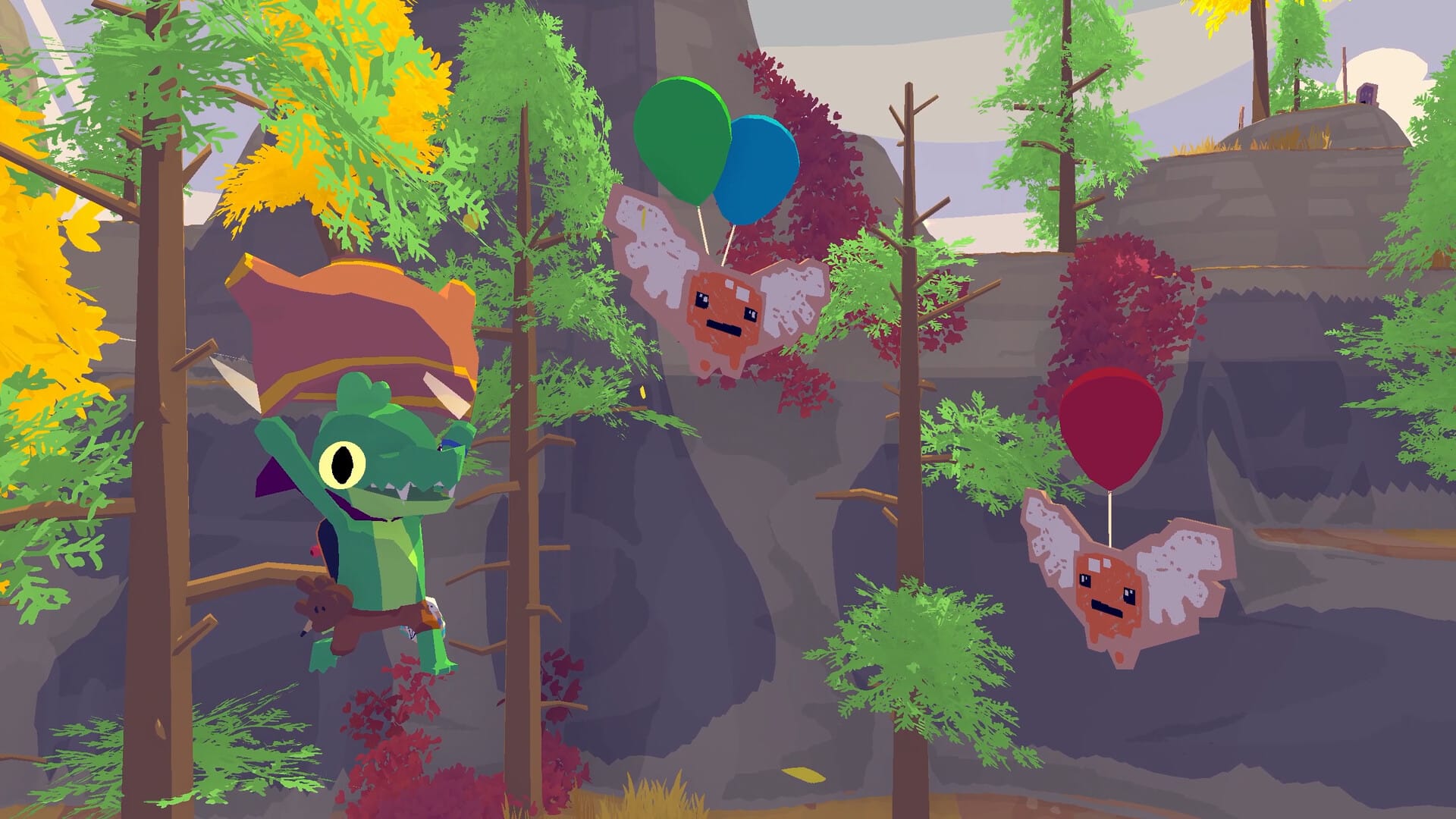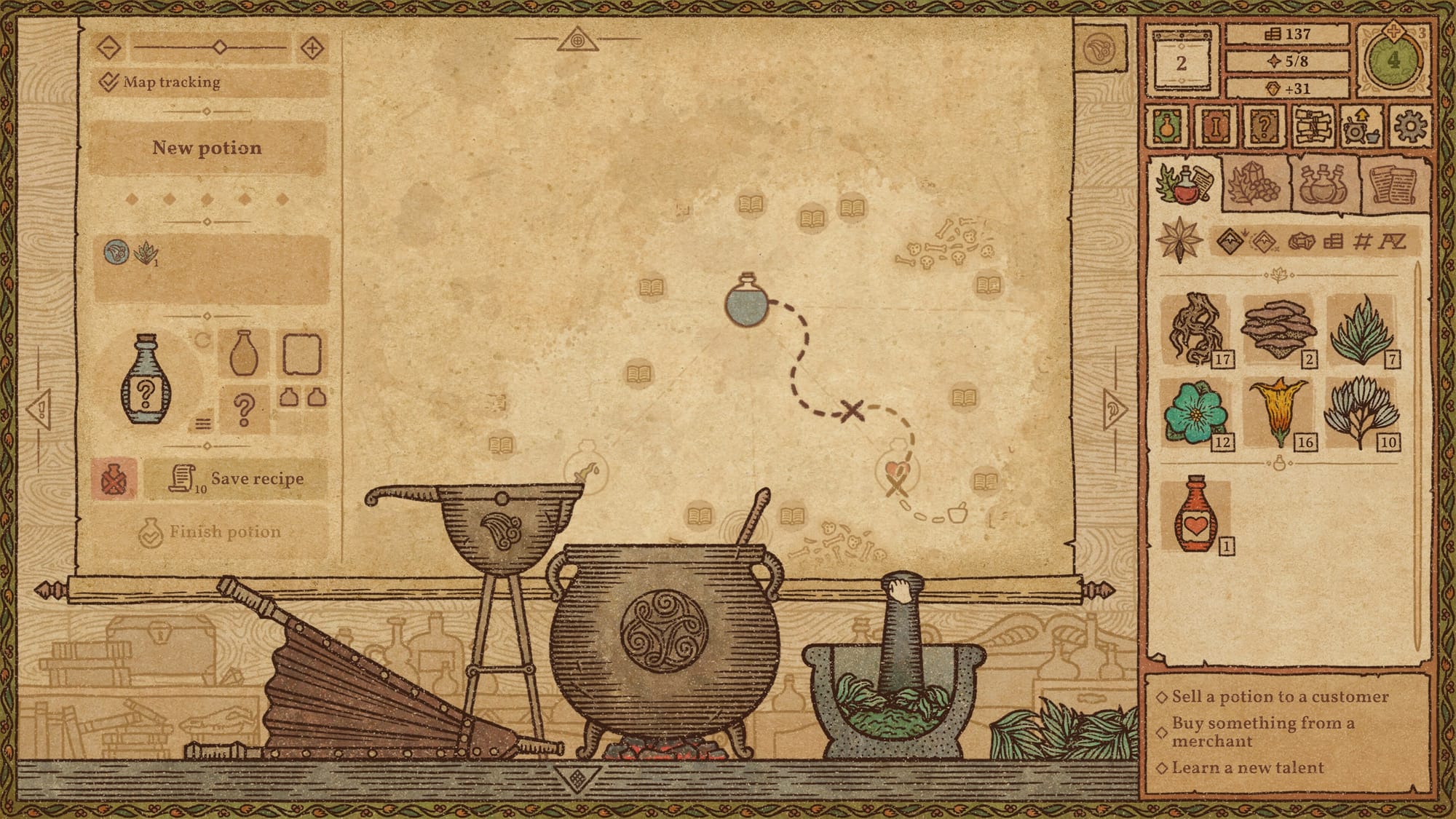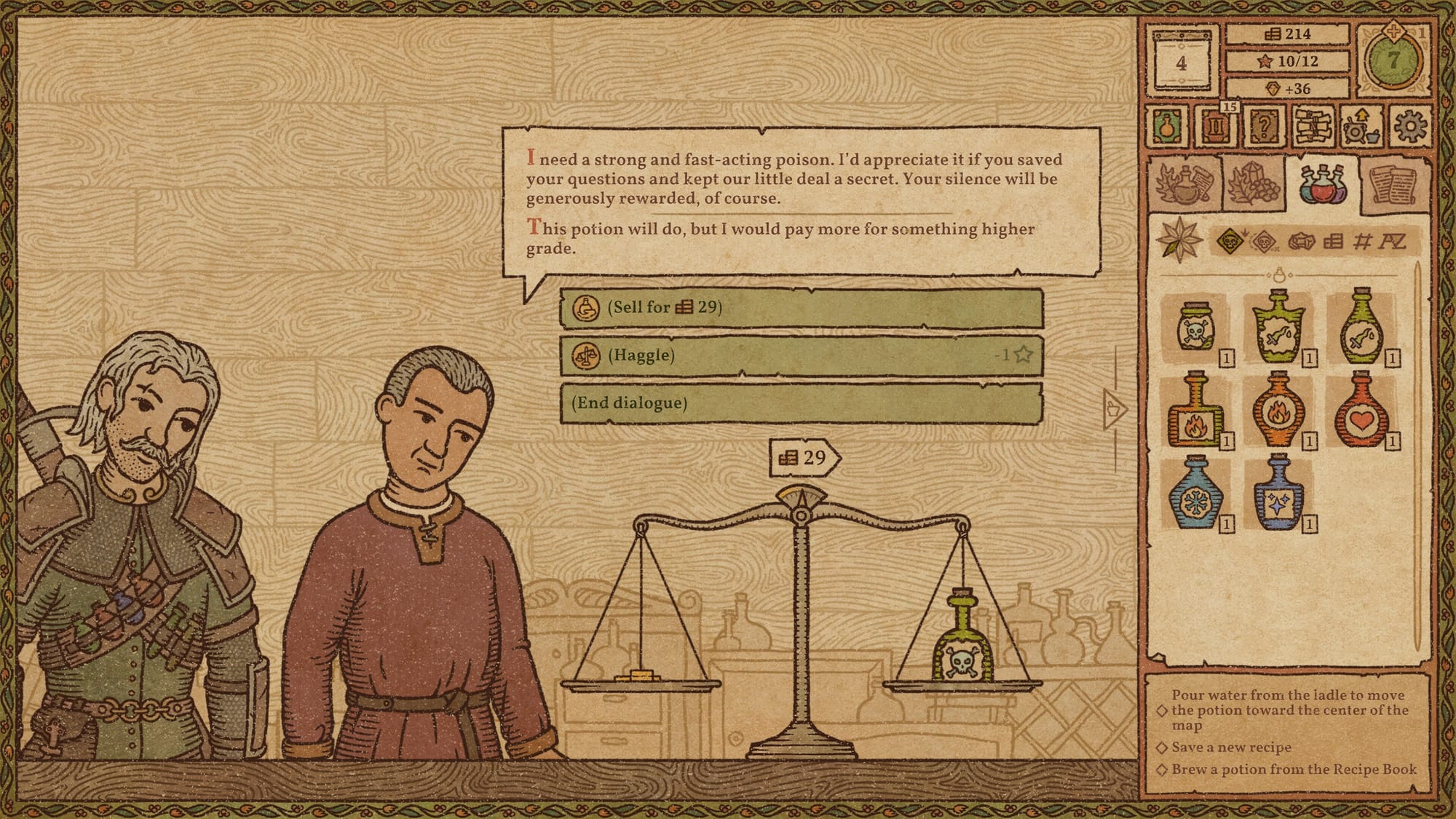December is a time of reflection, but it’s also a mad scramble to take one last bite out of your backlog, a futile attempt at shame reduction. I’m writing this instead of finishing Alan Wake 2. I’m pretending I’m still in Baldur’s Gate 3’s first act because I’m savoring it and not because I lack the commitment to finish long games in a timely fashion. I know I’m not alone in feeling like December is a time to be heads-down until the clock runs out.
Most gamers are done eyeing the calendar for the next big release. Chances are, the games you wanted to play have already come out and you still haven’t finished them (or, in some cases, you still haven’t started them). And when the new year comes around you either start fresh or try to finish up your favorites from last year. All of this means December releases often get lost in the shuffle. So here are my favorite games of 2023 that came out at the end of 2022.
Lil Gator Game

Lil Gator Game was the last thing I streamed in 2022 after it released on Dec. 14, 2022. The last day of work before a break usually means you’re ending early or phoning it in but this game was so good I ended up going 90 minutes over my usual stream time to finish it in one sitting. I hit credits after five and a half hours and if the Nintendo Switch had an achievement system I would’ve stayed even longer to 100% it.
Many 3D, cozy platformers use The Legend of Zelda’s design sensibilities as a mold, but few do it as successfully as Lil Gator Game. This is a must-play for anybody who loved A Short Hike. It doesn’t quite reach those highs, but its message resonated with me on a personal level. Narratively, it’s an exploration of childhood playtime with gameplay that brilliantly requires you to be a kid again on your journey to get your older sister to play with you.
Every ounce of this game is delightful, from the protagonists’ wobbly walk and the way they kick their feet when gliding across hilltops to the cosmetics’ homemade look. You’re just an adorable little adventurer with a wide range of traversal tools. Best of all, everything has an imaginative and childish angle to it. For instance, there’s a piece of bubble gum you can use to float in the air and a sticky hand that lets you latch onto parts of the environment.
You also wander around the island fighting enemies that are just cardboard standees of crayon-colored monsters. They’re not there to hurt you. They’re just cardboard bad guys you slay with, you guessed it, a cardboard sword. This no-stakes combat fits perfectly with playing pretend, as does cute collectible gear. For example, one of the shields is a scooter board, which turns shield surfing into a nostalgic gym class memory.

As you climb, swim, and glide across the land, you meet more friends to recruit for your giant game of pretend in the hopes of impressing your big sister so that she’ll stop working. During this recruitment process, you’ll do fetch quests, play mini-games, and complete timed challenges.
The adventure you go on is charming and adorable, full of fun tasks and personable dialogue, but the way Lil Gator Game handles its core conflict is what left such a lasting impression on me. In the end, it wasn’t really about getting your big sister to play or accepting that she was too busy (though both definitely play a role). It was more about thanking your sister for everything she did for you because being the older sibling often means making fun instead of having it. It instantly reminded me of the summer when my older brother took me to the park almost every day to play basketball. I thought of how little money he could scrounge up back then and how he’d use it to buy us Gatorade, a brief bit of relief from those scorching Chicago summers.
But what I love most about this motif of how being an older sibling comes with sacrifice is that it isn’t solely presented as a martyr story. In Lil Gator Game, the game the two of them play isn’t an obligation; it’s a gift. The older sister didn’t need to put in that much effort to entertain the younger. Her passion for game design and creating something people can enjoy has always been there, but to take those skills to the next level means dialing back on real-life play in favor of collegiate study. When she takes a moment during her work to remind herself to focus on what matters, she’s brought back to the games of their youth and takes a moment to play pretend one more time.
This sibling narrative runs in the background but it's given a truly beautiful conclusion. As a younger sibling, I was moved by what Lil Gator Game had to say.
Potion Craft: Alchemist Simulator

I first encountered Potion Craft on the PAX floor — literally. I sat on the ground to demo it. In 2022, tinyBuild’s booth was carnival-themed with huge banners, a high striker punching game, and little tents alongside playable titles.
And then there was Potion Craft. I had to double-check it was a tinyBuild published game because it was the only title not on theme. At all. It did have a tent, but it was pitch black with no playful stripes in sight. Its booth went full in on the alchemy theme with plants, vials, and an overflowing cauldron decorating the space. For the demo, we sat on pillows on the floor and were handed a tray with just a mouse. It was different in the best way. Potion Craft’s point-and-click gameplay is straightforward but the experience of running this potion shop was engrossing. Within minutes, I was hooked.
The full version dropped on Dec. 13, 2022, and was the first game to get me into using the Steam Deck. This was back when I was still borrowing my boyfriend’s because I had a rare moment of self-control when Steam Deck preorders originally opened.
The pitch is simple: Make and sell potions that fit your customers’ needs. The secret sauce is how Potion Craft goes beyond the soothing aspects typically associated with simulators and demands strategy and experimentation, somehow without creating stress. I look forward to checking my garden to see what has bloomed and can provide a much-needed restock to the inventory I used the day before. Clicking each plant with my mouse is a simple harvesting method, but the animation of the petals and leaves scattering above the grass makes me feel like I hand-plucked them.

Having to make the potions myself adds some welcome physicality. Grinding ingredients is satisfying; I hear the plants go from a crunch to a quiet grain as my pestle scrapes against the bottom of the stone mortar. The option to select your bottle shape, color, and label makes the whole process feel a bit more personal. But all of that takes a backseat to the crux of the gameplay: exploring the map by mixing ingredients to uncover new potion effects.
The journey starts with a bottle in the middle of the map, visible in the background of your potion brewing station. Each ingredient creates a different path as you mix it in the cauldron. For example, mudshroom goes south with a slight curve while Sulfur Shelf moves east with bulb-shaped waves. Picking your ingredients doesn’t just mean making potions; it means plotting your course. Your goal is to move around the map to reach new effects (such as poison, explosion, lust, etc) and potentially pick up XP along the way. In doing so, you create new recipes, which can be rewritten over time as you control which ones get saved in your book.
It’s exciting to me when games offer multiple solutions to a problem and the variety of recipes you can whip up is vast. The Alchemy Map in Potion Craft provides a helpful visual guide to ground my experimentation as I work to complete each objective to move to the next chapter.
I’ve been playing this game on and off throughout the year and while it is repetitive, especially if you’re not that efficient or get some bad luck in terms of traveling merchants’ stock, it never gets boring. The more I play, the more excited I get working towards goals like increasing my shop rating, all while trying to figure out if I want to have a moral compass or just be a capitalist when it comes to selling poisons, explosives, and other agents of chaos. The grind of Potion Craft is also balanced by its leveling system, which lets you improve things like the Alchemy Map’s visibility radius, trading, and more. Progress in Potion Craft isn’t linear but it's a challenge I sign up for again and again.
As I head into 2024, I can’t help but wonder if this time next year I’ll be trying to get everyone to remember House Flipper 2. When thinking about it in the context of my December 2022 favorites, it seems similarly cozy in its repetition, guided in its list of tasks, and ultimately about creation. I’m drawn to getting lost in worlds where you have a hand in crafting what those worlds look like. And while it's too soon for me to say where House Flipper 2 will land for me, I’m looking forward to ending the year building something beautiful.
